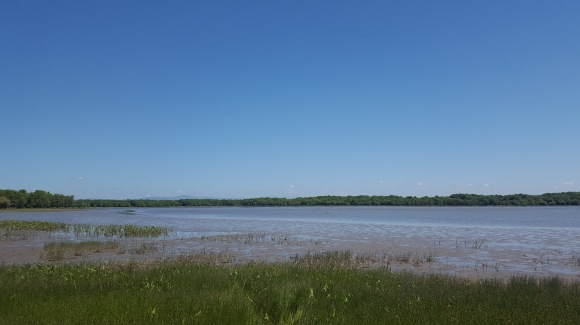
Columbia River from Sauvie’s Island, July 2018
I’ve always lived near marshy islands.
As a kid I remember taking part in the religious processions around Our Lady’s Island in Co Wexford. Thirty years later I ran most days on Bull Island in Dublin, when we lived in nearby Raheny.
This weekend I paid my first visit to Sauvie’s Island, just outside my current home in Portland, Oregon. It’s a little larger than its Wexford or Dublin equivalents, but it has many of the same features: low brushland, boggy beaches, and a huge sky above.
I can’t offer any great insight into why I’m attracted to these peninsular places, other than the solitude and immersion in nature they offer.
Aside from that, each place has its own unique feeling. To this day, Our Lady’s Island remains a ghostly place in my mind because of the exposed and lonely grottos that pilgrims stop and pray at as they circumnavigate the island.

Bull Island, September 2017.
Bull Island is weather and wind, an elemental place near – but completely alien to – Dublin city. My main memories of the place are of running there on a summer morning before dawn, and walking over it on a winter night after a huge rainstorm. On both occasions it was a vast, cacophonous place, even when silent.
I don’t yet know what Sauvie’s Island offers. The ghosts of dairy farmers and Indian tribes, perhaps. On the summer morning I walked there it was a calm – I imagine its shoreline is a very different place on a December night.
Thinking about this at my desk, I came across these lines written by the 19th century New York poet Emma Lazarus, about Long Island, which go some way to explaining the lure of my three islands, and why I’ll return to all three some day.
The luminous grasses, and the merry sun
In the grave sky; the sparkle far and wide,
Laughter of unseen children, cheerful chirp
Of crickets, and low lisp of rippling tide,
Light summer clouds fantastical as sleep
Changing unnoted while I gazed thereon.
All these fair sounds and sights I made my own.
_____





